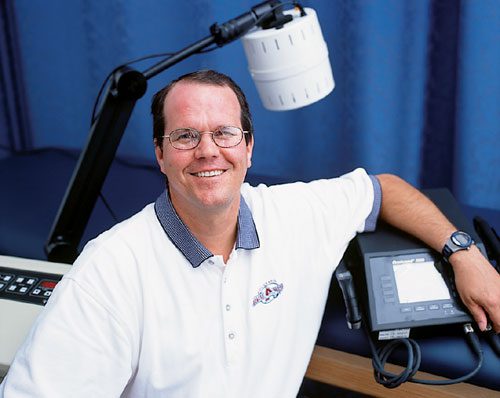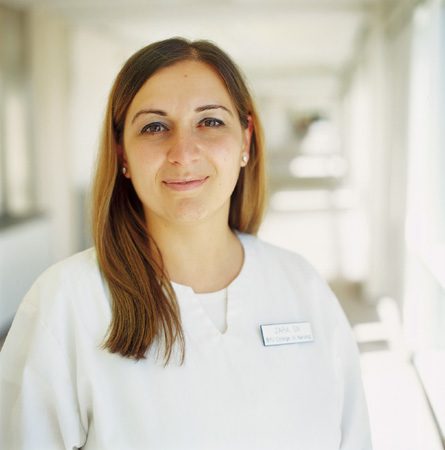The idea man behind Provo’s Stadium of Fire, Carl Bacon received this year’s Distinguished Emeritus Service Award.
For nearly 40 years Carl W. Bacon (BS ’67) has donned a patriotic jacket—sometimes blue, sometimes red—and waved the American flag as a member of the board of trustees of America’s Freedom Festival at Provo. When he was invited to participate in the early 1970s, he gave a rousing yes, and his enthusiasm has never wavered.
Growing up in California during World War II, Bacon remembers being taught to hide under tables in case of a bomb attack. “We experienced blackouts at night while we heard and saw hundreds of aircrafts flying overhead,” he says. “On Sundays our bishop would announce who had been killed in action and who was missing; the war was very real. We all experienced heightened feelings of patriotism, and I have always wanted to make sure we never forget the price of freedom.”
Bacon, who received the 2013 Distinguished Emeritus Service Award, has seen the festival grow from a modest community event to a major celebration that attracts participants from all over the country. During the month of activities is the enormous Stadium of Fire concert, patriotic show, and firework extravaganza.
“As a boy I used to go to the Coliseum in Los Angeles and watch fabulous fireworks shows, and when I suggested it for Provo, I’m sure people wanted to throw me from the room,” he says. “Fortunately, Alan and Merrill Osmond picked up the idea, and you know the Osmonds don’t think small. That show has been going on for 34 consecutive years, and we annually put close to 50,000 people into LaVell Edwards Stadium.” He says he doesn’t ever want to see the day when he leaves the festival.
Bacon is also known for other achievements: he served in the development office at BYU from 1966 to 1987 (10 years as director), worked with every BYU president since Howard S. McDonald, and helped expand the BYU stadium. He says about sports, “I’m not just a fan—I’m a fanatic.”
As he studied the fund-raising methods of other universities, Bacon learned they were having substantial success raising money through students. “The idea was that if they learned to give as students, they would be willing to give later as alumni,” he says. He remembers introducing two students who wanted to help raise money for the library to President Dallin H. Oaks (BS ’54); they were W. Mitt Romney (BA ’71) and Mark L. McConkie (BA ’70, MPA ’72). “They quickly got his attention, and guess what? That first year we raised $200,000,” Bacon says. “It was just one of our many successes.”
Always active in The Church of Jesus Christ of Latter-day Saints, Bacon has been a bishop, mission president of the Canada Toronto Mission, stake president, area authority, area seventy, and president of the Provo Temple. “I got a call from President Hinckley to preside in the Provo Temple, and I told him I could hardly talk, because I was so overwhelmed,” he says. “That was a wonderful spiritual highlight among many experiences I’ve had over the years in the Church.”
Because he was raised in Hollywood, Bacon says entertainment has always been in his blood. He and his friend the late Bob P. Engemann (’58), of the singing trio The Lettermen, worked with BYU professor and musician C. Ray Smith (BM ’75) to produce a live show in 2012 that exhibits Utah’s talented artists. Called Utah’s Stars and Friends, it is now in its second year. With no intention of slowing down, Bacon is also contemplating writing a book with his wife, Carolyn Schade Bacon (BA ’58), that chronicles their life and calling it Two Kids from Hollywood.
— Charlene Renberg Winters (BA ’73, MA ’96)









